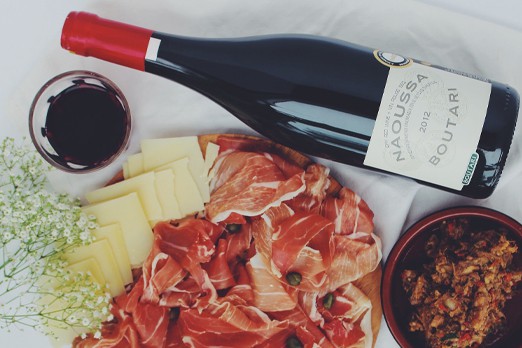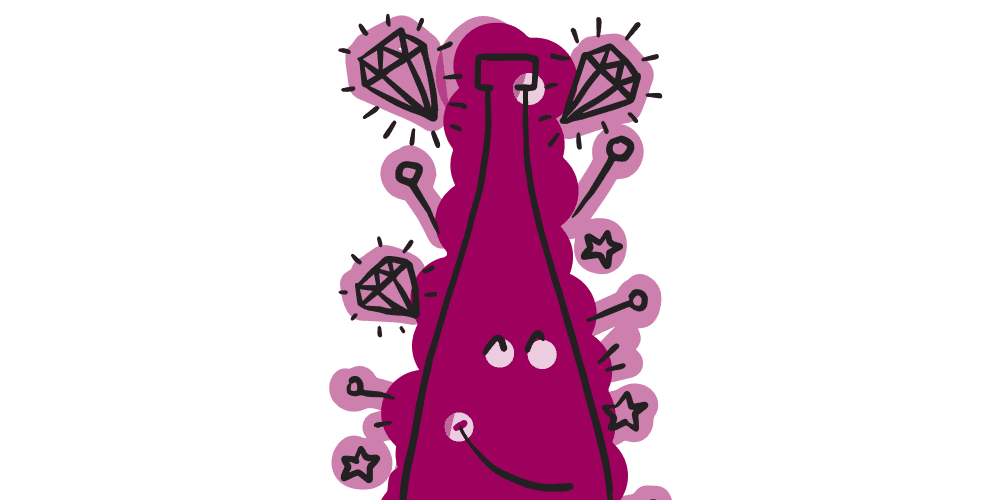Will the environment’s cupid savage biodiversity?
On World Bee Day we decided to dedicate an article to this precious insect and to a company that works hard every day to protect this species and biodiversity: Tasca d’Almerita.

There are those who are terrified of them, those who are allergic to them, and those who can’t stand their buzzing.
Bees, poor little things, have basically never been able to illicit great empathy, even though, more and more frequently, we’re being bombarded by dramatic advertisements that warn of their extinction.
And yet we should all be grateful to bees for the fundamental contribution they make to preserving nature and maintaining biodiversity.
In case you didn’t know, bees are among the primary pollinators, transporting pollen from one plant species to another, like little Cupids, thus allowing them to reproduce. Among these plants are many of the fruits and vegetables that we eat.
But have you ever TRULY stopped to think about the impact that a decrease in the bee population would have on our dietary habits?
Probably not, but the fact that the UN has created a day specifically dedicated to safeguarding these insects is a sign of how serious the situation is.
The use of pesticides in agriculture and an increase in pollution has caused an enormous reduction in the number of bees in the world.
Domestic and wild bees are responsible for approximately 70% of the pollination of all living plant species on the planet and guarantee approximately 35% of our global food production.
We’re not just talking about fruits and vegetables. The crops used for forage in the production of meat and dairy products would also be hit hard by a decrease in the number of pollinating insects. In particular apples, strawberries, tomatoes, almonds, and grapes would suffer.
Ultimately, the production of honey and royal jelly is not the reason that it’s important to safeguard bees: something much bigger is at stake. And it also affects wine.
BEES HELP TO IMPROVE THE QUALITY OF WINE
A study conducted by the University of Udine revealed that bees are friends to viticulture. Not only do they assist in pollination, but they also help to mitigate problems of rot in the grapes on the vine.
With their little ligula, a sort of trunk with which they suck nectar, they dry out the sugary liquids that, when attacked by microorganisms, could damage the healthy grapes.
Furthermore, it was shown that they play a fundamental role in increasing the amount of yeasts that develop on the skin of the grapes and that are necessary for fermentation.
So what can we do to protect these incredibly precious insects?
VIRTUOUS COMPANIES WORKING TO PROTECT BEES: TASCA D’ALMERITA
Many wine producers are beginning to adopt practices that help to preserve the existence of this insect.
Like, for example, the recovery of pollinators’ natural habitats, the drastic reduction in the use of agrochemicals, and the “redesigning” of agriculture.
We would like to specifically mention Tasca d’Almerita, a company that not only protects and raises bees, but is committed to safeguarding biodiversity in its entirety.
Co-founder of the Made in Sicily project SOStain, one of the first projects in Italy that is dedicated entirely to viticulture, it has always been on the front lines of sustainability.
One of the objectives of the project is to promote and develop everything that lives in and around the production system of Sicilian wine, like the terrain, the landscape, the flora, and the fauna.
Among the requisites for participating in SOStain, is that of measuring and protecting biodiversity.
In fact, an actual tally of bees, earthworms, butterflies, and terrestrial invertebrates is performed in order to ensure that their numbers never fall below 30% of that of uncultivated areas.
Furthermore, approximately 71 beehives are kept on the company’s various farms: 13 on the Tenuta Sallier de La Tour and 58 on the Tenuta Regaleali.
At Regaleali the focus is entirely on the Sicilian Black Bee, a local species that’s at risk of extinction and that produces a delicious honey, rich in antioxidants, which is served to guests at the farmstead.
However, safeguarding biodiversity also involves the job of promoting the local Sicilian vineyards managed by Tasca d’Alermita.
As summer approaches, we recommend two white wines that will definitely become part of your summer hit parade: BuonSenso and Cavallo delle Fate, both #Extroverted DOC.
Cavallo delle Fate is an example of the Grillo varietal and will take you on a journey through Sicily’s fantastical locations, immersed in the scent of sea salt and flowers from the Maquis shrubland and leaving the flavor of the sea on your tongue.
The second is 100% Catarratto, an ancient varietal that’s often used in blends or for the production of the renown Marsala, but in this wine is exalted in its purest form.
The grape is cultivated on a hill at an elevation of about 900m and therefore develops very delicate aromas of pink grapefruit, yellow peach, and green tea, with an intense and persistent flavor that is accompanied by a striking and fresh acidity.
According to Tasca, if you have a grain of Buonsenso (good sense), then in their region Catarratto is the varietal to cultivate. Hence its name, also because it tastes good and pleases the senses.
Speaking of good sense, the next time we see a bee let’s not brutally squash it, but rather cheer it on and thank it for everything it does for our planet.
Ready to join the Vinhood family?
Vinhood is the First Italian Taste Agency. We explore the world of taste to guide people about how to choose and consume products and supporting companies in nurturing personalized relationships with their customers.
Read more
- Homo enologus in social media times: the Roman wine producer that makes natural wines in Lucca
 A story with a dreaming scent. We're in Tuscany, among Lucca hills, where it is possible to taste natural wines with the wide respet for what earth can offer to us.
A story with a dreaming scent. We're in Tuscany, among Lucca hills, where it is possible to taste natural wines with the wide respet for what earth can offer to us. - About the Vinhood Academy
 The Vinhood Academy, the digital course for basic wine knowledge, told by those who have experienced it firsthand: Linda Fiumara, a teacher, blogger, and tireless traveler!
The Vinhood Academy, the digital course for basic wine knowledge, told by those who have experienced it firsthand: Linda Fiumara, a teacher, blogger, and tireless traveler! - How to read an Italian wine label
 How important is it to know how to read a wine label? Really important. Just think, this small space contains the most important product information. Here is a short guide on how to read an Italian wine label.
How important is it to know how to read a wine label? Really important. Just think, this small space contains the most important product information. Here is a short guide on how to read an Italian wine label.




